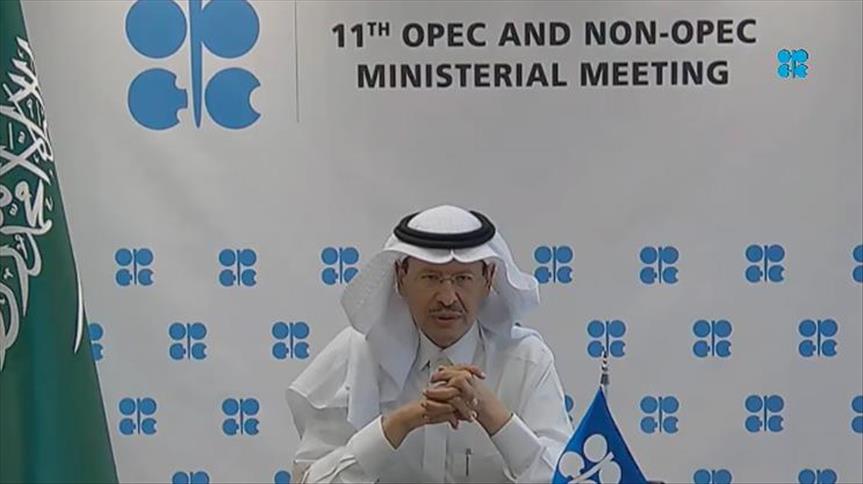OPEC has agreed to extend its production cut deal for an additional month, but the organization's de facto leader said Monday that it is unacceptable for some members' lack of conformity to their respective oil production quotas.
"We have no room for lack of conformity," Saudi Arabia's Energy Minister Prince Abdulaziz bin Salman said in a press conference held via webcast.
"All of us, and the oil market, have no stomach for any type of laxities in terms of self-imposed cuts that need to be attended to," he added.
OPEC and non-OPEC countries agreed Saturday to extend the agreement to curb oil production by a total of 9.7 million barrels per day (bpd) for one more month until the end of July.
The original agreement of the 23-member OPEC group was for an output cut from May 1 to June 30; however, some members, namely Iraq and Nigeria, failed to comply.
These members are now tasked to provide additional cuts from their individual oil production levels in July, August and September under the new deal.
However, ensuring all OPEC+ members adhere to their individual production quotas is the key to success.
Although "implementation will be self-imposed," bin Salman said they would continually monitor the situation and the global oil market.
- Four factors to watch
To ensure all OPEC+ nations make output cuts, members agreed Saturday that OPEC's Joint Ministerial Monitoring Committee (JMMC), which closely monitors the market conditions, member countries' oil output compliance and conformity levels, will convene monthly starting June 18 until December 2020.
"We are close to full conformity. We have spent a lot of time discussing full conformity and how this can be compensated," Russia's Energy Minister Alexander Novak said in the press conference.
"We are also monitoring the market very closely with a mechanism in place [for OPEC+] that is very flexible to quickly react to the changes in the market," Novak added.
Novak emphasized the four major factors that OPEC+ members will take into account on deciding whether they will extend the production cut agreement beyond July.
Global economic recovery, supply-demand balance, crude inventory levels and the situation of the oil market are the factors that have to be taken into account, he said.
- Too early for Libya
When asked about OPEC’s next move following Libya’s oil production restart in its largest oilfield El-Sharara, ministers agreed it is too early to take their fellow members' output into account.
Mohamed Arkab, Algeria's minister of energy and president of the OPEC conference said they would monitor Libya's situation at the JMMC meeting next week.
"Libya is not part of the production reduction agreement. It would be unproductive to engage them in their early days," Saudi Arabia's bin Salman said.
He also disclosed the kingdom’s decision to not continue its individual voluntary output cut of an additional 400,000 bpd that started on Jan. 1, beyond June 30, saying "Voluntary cut served its purpose and we are moving forward."
By Ovunc Kutlu
Anadolu Agency
energy@aa.com.tr


